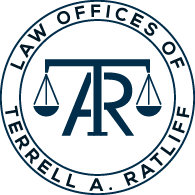Published: June 28, 2025
Focus Keyword: Brady violation New Jersey
Opinion PDF: Read full decision
Introduction: Why State v. Allen Matters
The June 2025 ruling in State v. Allen (Docket No. A-1045-22) is a major development for anyone handling a Brady violation in New Jersey. This appellate opinion redefines how courts analyze new trial motions tied to suppressed evidence and prosecutorial misconduct.
Attorneys, policy advocates, and defendants alike should take notice—this decision blends the Brady and Carter standards into a unified framework that could alter post-conviction outcomes statewide.
Case Summary: State v. Allen and the Brady Disclosure Failure
In 1999, Yusef B. Allen was convicted of murder based heavily on the testimony of Ruby Waller—a witness with known credibility issues. Decades later, Allen alleged the State had failed to disclose two critical pieces of evidence:
- A 1991 plea deal Waller had in another case
- A potential financial reward from Union County Crime Stoppers
These allegations formed the basis of his motion for a new trial. The trial court denied the motion under the Carter standard, without squarely addressing the claimed Brady violation.
The Appellate Division disagreed with the legal approach but affirmed the outcome, remanding only to investigate the Crime Stoppers payment. This nuanced ruling now shapes the legal threshold for future Brady claims in New Jersey criminal appeals.
Legal Standards Compared: Brady vs. Carter
What Is a Brady Violation?
A Brady violation occurs when the prosecution suppresses favorable evidence that is material to guilt or punishment. Under Brady v. Maryland, the defense must show:
- The evidence is favorable to the accused;
- The State suppressed it;
- It’s material—meaning it could have affected the trial outcome.
How Carter Differs in New Jersey
Under State v. Carter, a defendant must prove:
- The evidence was discovered post-trial;
- It couldn’t have been found with due diligence;
- It would probably lead to a different verdict.
Key difference: Brady does not require the defense to exercise reasonable diligence, while Carter does. That distinction is vital in evaluating a Brady violation in New Jersey courts.
Why This Matters: Shared Materiality, Divergent Duties
In Allen, the appellate court emphasized that Brady and Carter share a “materiality” requirement—whether the new evidence undermines confidence in the verdict. This convergence may lead trial courts to shortcut one standard in favor of another.
Practitioners must be explicit: raise Brady and Carter claims separately, and preserve the correct framing for appellate review.
Open File Discovery: Reinforced by Allen
The decision affirms New Jersey’s open-file discovery regime (Rule 3:13-3) and expands what prosecutors must disclose. This includes:
- Impeachment evidence
- Materials held by police, agencies, or third parties
- Prior deals, plea bargains, and financial inducements
This interpretation aligns with Kyles v. Whitley and State v. Hernandez (225 N.J. 451), reinforcing a wide net for prosecutorial obligations.
Prosecutors now face heightened scrutiny for buried evidence—even if not willfully suppressed—when fighting off Brady violation claims in New Jersey.
Crime Stoppers Subpoena: A Turning Point
Allen’s subpoena to Union County Crime Stoppers sought to confirm whether Waller was paid for testifying. Though the trial court dismissed it, the appellate panel ruled that the court must investigate further.
This shows courts are becoming more open to:
- Investigating private reward structures
- Compelling disclosures from third parties
- Honoring due process even when supporting evidence appears “thin”
This expands the scope of what can trigger a Brady violation in New Jersey.
Action Items for Criminal Defense Attorneys
Attorneys seeking post-conviction relief should leverage Allen to:
- Separate Brady and Carter arguments in motions
- Request subpoenas for Crime Stoppers and similar entities
- Demand disclosure of any witness incentives—monetary or otherwise
- Argue materiality as “undermining trial confidence” rather than demanding outcome certainty
This can improve the odds of success for new trial motions or habeas petitions.
Policy Outlook: Will New Jersey Reform Brady Enforcement?
Following Allen, New Jersey lawmakers and judicial committees may consider:
- Mandating disclosure of all third-party reward programs
- Requiring registries for plea deals and witness incentives
- Expanding post-conviction access to private actor information
Such reforms would align with national best practices for transparency and fair trial rights.
Conclusion: What Allen Means for the Future of Due Process
State v. Allen isn’t just a case—it’s a doctrinal reset on Brady violation enforcement in New Jersey. It modernizes disclosure expectations and forces both prosecutors and defense counsel to adopt a more strategic, constitutionally sound approach.
Attorneys must stay updated and use Allen as both sword and shield in criminal litigation.
FAQs: Brady Violations and State v. Allen
Q1: What is a Brady violation in New Jersey?
A Brady violation occurs when the prosecution fails to disclose favorable, material evidence that could influence the trial’s outcome.
Q2: What did State v. Allen change about Brady law?
It clarified that while Brady and Carter both hinge on materiality, only Carter requires defense diligence. Courts must now consider both separately in new trial motions.
Q3: Can Crime Stoppers payments trigger a Brady violation?
Yes—undisclosed rewards from private groups like Crime Stoppers may count as impeaching evidence, especially if they influence a witness’s credibility.
Q4: What should defense attorneys do after Allen?
File detailed motions that cite both Brady and Carter, request third-party subpoenas, and focus on undermining trial confidence—not just proving innocence.
Q5: Where can I read the full opinion in State v. Allen?
The full Appellate Division opinion is available here (PDF).
